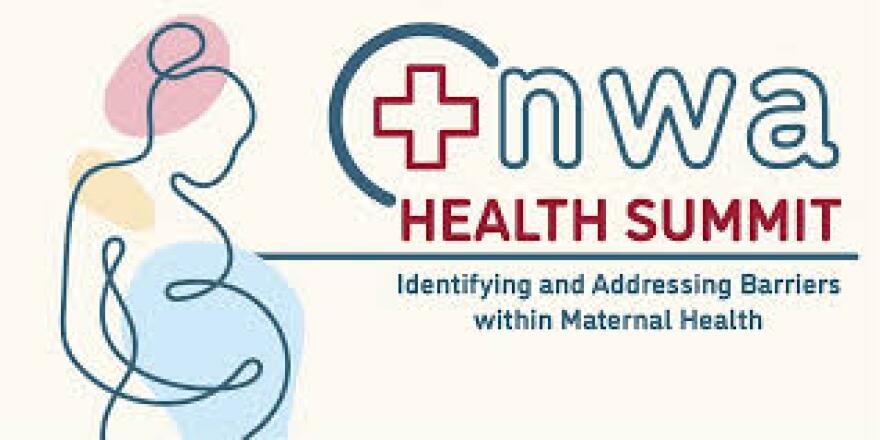Last week, Bentonville-based think tank Heartland Forward released a study on the economic impact of maternal health in Arkansas at the third annual Northwest Arkansas Health Summit.
The event brought together stakeholders from across the state - in health care, public policy and non-profit sectors - and offered panels and workshops all around pregnancy and women's and infant's health in Arkansas. Pearl McElfish is the director of the University of Arkansas for Medical Science's Institute for Community Health Innovation.
"This year's focus is on maternal child health," she said. "We're excited to focus on actionable solutions that can be done collaboratively to really shift maternal health outcomes."
McElfish said it was important to hold this summit on maternal health specifically because, she believes, it is the most significant health problem facing people in the state today.
"We are devastated for the highest maternal mortality," she said. "[The summit] demonstrates the broad commitment to changing maternal health in Arkansas."
Arkansas has the highest maternal mortality rate in the nation and the third highest infant mortality rate, according to numbers from the health research organization Kaiser Family Foundation.
Dr. Kalena Jones is with Baptist Health's ARHOME program, which delivers no-cost at home health care to at-risk mothers. During her presentation she explained that almost 90 percent of pregnancy related deaths in Arkansas are considered preventable.
"I definitely don't think it's something that happened over night," she said. "Arkansas, the whole country actually, is focusing on 'okay, we are losing women, we're losing them from preventable reasons, what do we do about it?'"
On the day of the event Bentonville-based research organization Heartland Forward released a new study that lays out the landscape of maternal health in Arkansas along with 5 other neighboring and similar states.
Ross Devol is president and CEO of heartland Forward and said this study and action plan - The Economic Case for Investing in Maternal Health - is likely the first of its kind.
"It restricts a woman's ability to participate in the labor force," he said. "We were trying to provide the economic lens for why we need to invest more in maternal and infant health."
According to the study the state is losing out on about 875 million dollars a year due to these undesirable outcomes. One metric from Heartland forward estimates that by reducing preterm and low-weight births by 50 percent the state could save around 300 million dollars.
Maria Rodriguez-Alcala is the director for health and wellness at Heartland Forward and contributed to the study. She said the work revealed several gaps in the health outcomes for women in Arkansas.
"We seriously need to start investing in how do we get more women to have a healthier lifestyle," she said. "Not just when they are pregnant, but before."
Rodriguez -Alcala said birth complications impact the most economically vulnerable - including rural, low-income and women of color - disproportionately. One major barrier she found was lack of access.
"In many rural communities you don't have clinics that provide maternal health," she said. "If you do the issue is: Is there transportation to get there, can this person miss work to get there, or is there childcare when needed."
Amir Masoud Forati is a health researcher for Heartland Forward and said one of the key takeaways from the data was that more resources need to be put into education for women and expectant mothers.
"Awareness, education and health literacy is another important driver of undesirable health outcomes," Forati said.
In focusing on economic impacts Forati, Rodriguez-Alcala and Devol all said the goal is to incentivize policy makers to act.
"We hope to engage public policy leaders," Devol said. "We need to invest in community health workers. Telehealth is part of the solution as well. We need to improve the number of mental health service and reduce the stigma associated with them."
For Dr. Kalena Jones, she said programs like the NWA Health Summit are a good first step in getting practitioners and service providers on the same page about the crisis.
"It's all basically grassroots," she said. "It's going to take entire communities... and departments of health. We have 70 of those across the state. So it's just going to take that collaborative approach. It's too much for one organization to tackle."








